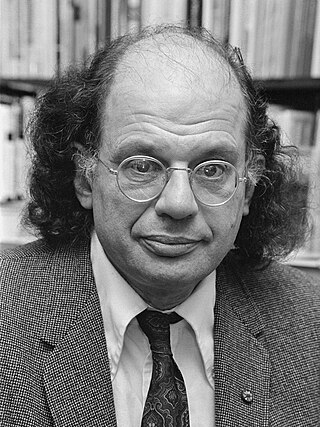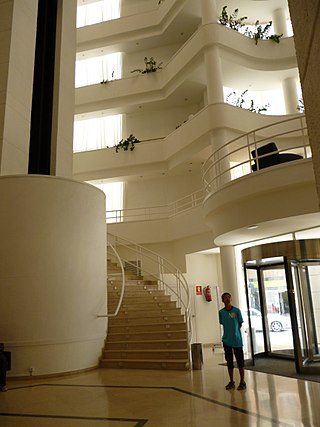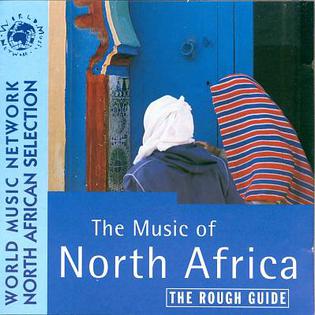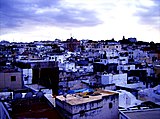
Irwin Allen Ginsberg was an American poet and writer. As a student at Columbia University in the 1940s, he began friendships with William S. Burroughs and Jack Kerouac, forming the core of the Beat Generation. He vigorously opposed militarism, economic materialism, and sexual repression, and he embodied various aspects of this counterculture with his views on drugs, sex, multiculturalism, hostility to bureaucracy, and openness to Eastern religions.

Beatniks were members of a social movement in the 1950s and early 1960s who subscribed to an anti-materialistic lifestyle. They rejected the conformity and consumerism of mainstream American culture and expressed themselves through various forms of art, such as literature, poetry, music, and painting. They also experimented with spirituality, drugs, sexuality, and travel. The term “beatnik” was coined by San Francisco Chronicle columnist Herb Caen in 1958, as a derogatory label for the followers of the Beat Generation, a group of influential writers and artists who emerged in the late 1940s and early 1950s. The name was inspired by the Russian suffix “-nik”, which was used to denote members of various political or social groups, such as “Sputnik”. The term “beat” was originally used by Jack Kerouac in 1948 to describe his social circle of friends and fellow writers, such as Allen Ginsberg, William S. Burroughs, and Neal Cassady. Kerouac said that “beat” had multiple meanings, such as “beaten down”, “beatific”, “beat up”, and “beat out”. He also associated it with the musical term “beat”, which referred to the rhythmic patterns of jazz, a genre that influenced many beatniks.

North Beach is a neighborhood in the northeast of San Francisco adjacent to Chinatown, the Financial District, and Russian Hill. The neighborhood is San Francisco's "Little Italy" and has historically been home to a large Italian American population, largely from Northern Italy. It still has many Italian restaurants, though many other ethnic groups currently live in the neighborhood. It was also the historic center of the beatnik subculture and has become one of San Francisco's main nightlife districts as well as a residential neighborhood populated by a mix of young urban professionals, families, and Chinese immigrants.
The Beat Generation was a literary subculture movement started by a group of authors whose work explored and influenced American culture and politics in the post-war era. The bulk of their work was published and popularized by Silent Generationers in the 1950s, better known as Beatniks. The central elements of Beat culture are the rejection of standard narrative values, making a spiritual quest, the exploration of American and Eastern religions, the rejection of economic materialism, explicit portrayals of the human condition, experimentation with psychedelic drugs, and sexual liberation and exploration.
Moroccan music varies greatly between geographic regions and social groups. It is influenced by musical styles including Arab, Berber, Andalusi, Mediterranean, Saharan, West African, and others.

Asilah is a fortified town on the northwest tip of the Atlantic coast of Morocco, about 31 km (19 mi) south of Tangier. Its ramparts and gateworks remain fully intact.
Moroccan literature is the literature produced by people who lived in or were culturally connected to Morocco and the historical states that have existed partially or entirely within the geographical area that is now Morocco. Apart from the various forms of oral literature, the written literature of Morocco encompasses various genres, including poetry, prose, theater, and nonfiction like religious literature. Moroccan literature was and is mainly written in Arabic, however it was also written at a lesser extent in Berber languages, Hebrew, French, and Spanish. Through translations into English and other languages, Moroccan literature originally written in Arabic or one of the other native languages has become accessible to readers worldwide.
Chaabi refers to several types of popular music of Morocco, combining rural and urban folk music.
Maroc Soir is an evening Moroccan newspaper that is published in French-language.

Houhai is a lake and its surrounding neighborhood in Xicheng District of central Beijing, China. Houhai is the largest of the three lakes, along with Qianhai 'Front Lake' and Xihai 'Western Lake', that comprise Shichahai, the collective name for the three northernmost lakes in central Beijing. Since the early 2000s, the hutong neighborhood around Houhai has become known for its nightlife as many residences along the lake shore have been converted into restaurants, bars, and cafes. The area is especially popular with foreign tourists visiting Beijing and is also often visited by the expatriate community and the younger generations of locals.

Warmoesstraat is one of the oldest streets in Amsterdam, running parallel to Damrak from Nieuwebrugsteeg to Dam Square. Its origins are in the 13th century. In the 16th and 17th century it was the shopping street. During the Dutch Golden Age, the father of legendery poet and playwright Joost van den Vondel ran a business as a silk merchant there.
The Musée de Carmen-Macein is a private art museum in the Kasbah area of Tangier, Morocco. The museum contains sculptures, paintings and lithographs by artists such as Pablo Picasso, Max Ernst, Salvador Dalí and Georges Braque.

The Hotel Continental, built in 1870, is one of the oldest hotels in Tangier, Morocco. The yellowing pages of the 19th-century guestbook refer to notable residents, Edgar Degas, Winston Churchill, and the Beat poets among them, and Bernardo Bertolucci's The Sheltering Sky was partly filmed here. It is located in the Medina area of the city and some of the rooms overlook the harbor.
Yosefa Lazen is an Israeli singer born of Yemeni-Jewish and Moroccan-Jewish parents. Her style blends world beat electronic dance music beats, rap and soul with traditional singing styles of the Morocco and Yemen. She lives in Israel.

Hotel Ceuta Puerta de Africa is a hotel in Ceuta, a Spanish city bordering northern Morocco. It is located near the Palacio Municipal in the centre of the city, near the corner of Avenida Alcalde Antonio L. Sánchez Prados and the Plaza de África. The hotel has 117 rooms, two suites, a restaurant, bar and conference rooms which accommodate up to 530 people.

The Rough Guide to the Music of North Africa is a world music compilation album originally released in 1997. Part of the World Music Network Rough Guides series, the album contains five Algerian tracks, five Egyptian, two Sudanese, and two Moroccan, focusing mainly on modern music but including some traditional works. The compilation was produced by Phil Stanton, co-founder of the World Music Network.
The following is a timeline of the history of the city of Tangier, Morocco.
The European Beat Studies Network (EBSN) and association (EBSN,e.V.,) is a charitable organisation and network founded in 2010 by scholars Polina Mackay and Professor Oliver Harris. It comprises an international community of scholars and students, writers and artists with an interest in the broad field of Beat culture and the writers and artists associated with the Beat Generation. It holds annual conferences and promotes research and collaboration in the field of Beat Studies and the arts. It is particularly transnational in focus, as Dr. Chad Weidner writes: 'The impetus of the European Beat Studies Network (EBSN) provides an additional forum for transnational angles into the Beats.'

Black Eagle is a gay bar in Montreal, Quebec, Canada. It attracts "leather and jeans" clientele, and screens pornography. The venue has theme nights, "draws a devoted crowd of 20-40 something men", and caters to the bear and leather subcultures.
Arabs in Malta are mostly expatriates from a range of Arab countries, particularly Libya and Syria. This list includes both first-generation and second-generation expatriates.











